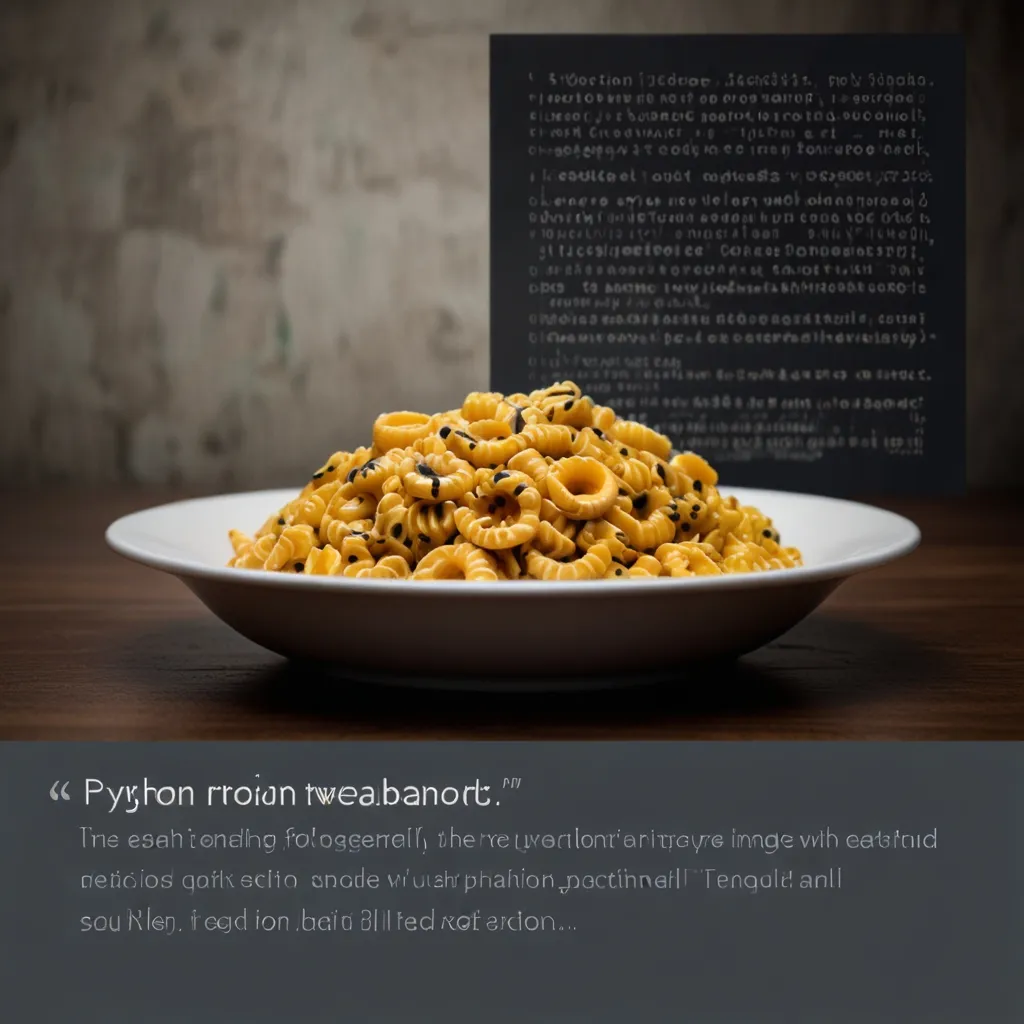Web scraping is like that magical ticket you’ve always wanted. Whether you’re looking to grab data from static websites or those pesky dynamic ones, Python’s got a couple of killer tools that can help you out – Beautiful Soup and Selenium.
The Dynamic Duo: Beautiful Soup and Selenium
Let’s break it down. Beautiful Soup is a Python library that’s brilliant for parsing HTML and XML documents. It’s basically your best buddy for navigating and searching through web page contents. Super neat for scraping static content, but it hits a bump when JavaScript comes into play. JavaScript? That’s where Selenium steps in.
Selenium is a browser automation tool that’s like having a digital assistant control a web browser for you. It’s great for dealing with dynamic content – things that load because of user interactions or good old JavaScript. Imagine it as a surrogate human web surfer.
Setting Up Your Web Scraping Lair
Before you dive in, you gotta set up your environment. First off, make sure Python 3.9 or a later version is installed on your system. Next, hop into creating a virtual environment. This is your sandbox where all your project dependencies live happily together. And then, go ahead and install requests, beautifulsoup4, and selenium using pip:
pip install beautifulsoup4 requests selenium
Set? Awesome, let’s roll!
Beautiful Soup: Scraping Static Content
For those simpler, static web pages, Beautiful Soup is your go-to. It’s like bringing a knife to a butter party. Here’s a quick guide.
First, send an HTTP request to get the HTML content:
import requests
from bs4 import BeautifulSoup
url = "https://example.com"
response = requests.get(url)
soup = BeautifulSoup(response.content, 'html.parser')
Next, use your browser’s developer tools to prod the HTML structure of the page. Basically, figure out where your data is hiding.
# Find all book titles
book_titles = soup.find_all('h2', class_='book-title')
for title in book_titles:
print(title.text.strip())
Finally, navigate through the HTML and extract the data you need.
# Extract book URLs, titles, and prices
books = soup.find_all('li', class_='book')
for book in books:
url = book.find('a')['href']
title = book.find('h2', class_='book-title').text.strip()
price = book.find('p', class_='price').text.strip()
print(f"URL: {url}, Title: {title}, Price: {price}")
Selenium: Tackling Dynamic Content
For websites loaded with JavaScript tricks, Selenium is your Swiss Army knife. Here’s how to wield it.
First, set up Selenium. Download the WebDriver for your browser (e.g., ChromeDriver for Chrome) and install the Selenium package:
pip install selenium
Then, take Selenium out for a spin by launching a browser instance:
from selenium import webdriver
driver = webdriver.Chrome('/path/to/chromedriver')
Navigate to the webpage you want to scrape:
url = "https://example.com"
driver.get(url)
Sometimes, web pages need a little nudge – scrolling down or clicking around to load content. You can do that with:
# Scroll down the page to load more content
driver.execute_script("window.scrollTo(0, document.body.scrollHeight);")
Once your content is all set, you can now fetch it using Beautiful Soup.
from bs4 import BeautifulSoup
html = driver.page_source
soup = BeautifulSoup(html, 'html.parser')
# Extract video titles and URLs
videos = soup.find_all('div', class_='video')
for video in videos:
title = video.find('h2', class_='video-title').text.strip()
url = video.find('a')['href']
print(f"Title: {title}, URL: {url}")
Troubleshooting Tips
Scraping isn’t all smooth sailing. To handle timeouts and delays - waiting for the content to load fully before you get grabby - Selenium has WebDriverWait.
from selenium.webdriver.common.by import By
from selenium.webdriver.support.ui import WebDriverWait
from selenium.webdriver.support import expected_conditions as EC
element = WebDriverWait(driver, 10).until(
EC.presence_of_element_located((By.CSS_SELECTOR, ".video-title"))
)
Some websites will throw Captchas or rate limits your way. Tricks to bypass these? Try rotating user agents, using proxies, or spacing out your requests.
Error handling is another biggie. Retries and exceptions will make sure your script doesn’t collapse at the first sign of trouble:
import time
max_retries = 3
retries = 0
while retries < max_retries:
try:
# Your scraping code here
break
except Exception as e:
retries += 1
time.sleep(1) # Wait for 1 second before retrying
print(f"Error: {e}, Retrying...")
Kick it Up a Notch: Advanced Techniques
Rotate your user agents to dodge getting blocked. It makes your web scraping activities look more human-like:
import random
user_agents = [
"Mozilla/5.0 (Windows NT 10.0; Win64; x64) AppleWebKit/537.36 (KHTML, like Gecko) Chrome/58.0.3029.110 Safari/537.3",
"Mozilla/5.0 (Windows NT 6.1; WOW64) AppleWebKit/537.36 (KHTML, like Gecko) Chrome/51.0.2704.103 Safari/537.36",
# Add more user agents here
]
headers = {
'User-Agent': random.choice(user_agents)
}
You can also use proxies to sidestep IP blocks and rate limits:
import requests
proxies = {
'http': 'http://proxy.example.com:8080',
'https': 'http://proxy.example.com:8080',
}
response = requests.get(url, proxies=proxies)
Real-World Web Scraping
The possibilities with web scraping are pretty much endless. Imagine automating e-commerce price tracking. You could showcase price fluctuations over time, helping consumers grab the best deals or aiding businesses in competitive pricing strategies.
Or, scrape social media for sentiment analysis. This can be a game-changer for brands, making sense of public opinions, and tailoring their strategies accordingly.
Even building a real-time news aggregator isn’t far off. Pulling the latest articles from various sources to keep people in the loop about current events is a click away.
Wrapping It Up
Mastering web scraping with Python using Beautiful Soup and Selenium is like having a superpower. You can pull data from the web in ways you never thought possible. Whether you want to keep tabs on competitors, analyze social sentiment, or just plain gather info, these techniques will be your secret weapon. Dive in, don’t be afraid to experiment, and make these tools work for you. Happy scraping!






